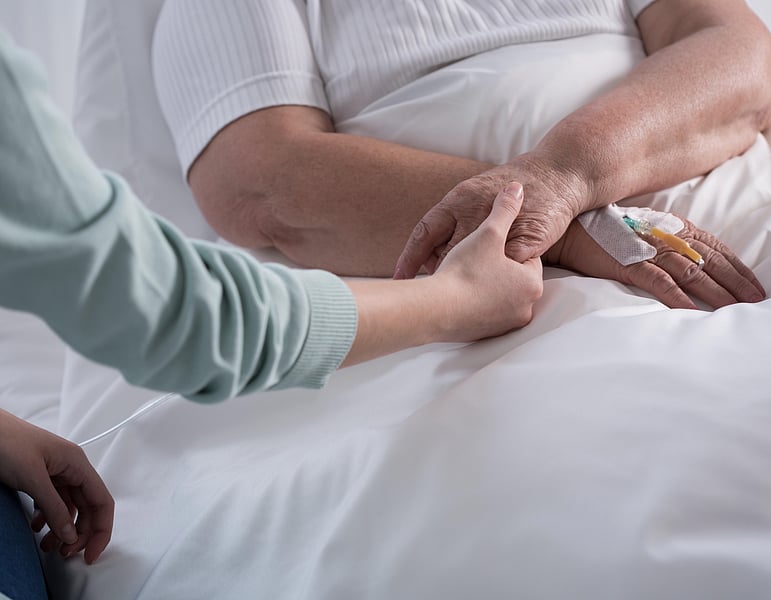Get Healthy!

- Dennis Thompson
- Posted August 29, 2022
Thousands of U.S. Patients Got COVID Treatments Rejected as Useless by FDA
U.S. doctors administered more than 150,000 doses of useless monoclonal antibody treatments to COVID-19 patients early this year, spending loads of cash on therapies that had been deemed of no benefit, a new study has found.
The U.S. Food and Drug Administration deauthorized the use of two COVID monoclonal antibody treatments in January, after it was found that the therapies did not work against the Omicron variant of SARS-CoV-2.
Despite this, COVID-19 patients received more than 158,000 doses of bamlanivimab/etesevimab and casirivimab/imdevimab well into 2022, potentially costing millions of dollars while providing little to no relief, according to the study by researchers at Beth Israel Deaconess Medical Center (BIDMC) in Boston.
The proportion of COVID cases for which the unauthorized treatments were deployed did not peak until late March, weeks after the FDA had said not to use them, the researchers found.
"Continued use of these treatments represents low value care and may reflect conflicting state government guidance or a lack of hospital awareness of deauthorization,"said researcher Dr. Timothy Anderson of the BIDMC Center for Healthcare Delivery Science.
"Though the FDA clearly stated these treatments were no longer authorized for use, the FDA did not fully revoke their emergency use authorizations based on the possibility that they may work to treat future COVID-19 variants,"he added in a BIDMC news release. "This could have led to confusion and misinterpretation."
Monoclonal antibodies are designed in the lab and are tailor-made to attack specific viruses. If a virus evolves enough, the treatments can be rendered ineffective.
In early 2021, the FDA issued emergency use authorization for the two monoclonal antibody therapies, aimed at heading off severe COVID-19 in infected patients who were at high risk for hospitalization and death.
But when Omicron emerged in the United States last December, it caused a record-breaking COVID surge and was quickly found to flout the existing monoclonal antibody treatments.
For the study, Anderson and his colleagues tracked administration of monoclonal antibodies using public reports that hospitals provide to the U.S. Department of Health and Human Services.
Monoclonal antibody use after deauthorization varied widely between states, with Florida and New York, respectively, accounting for 24% and 20% of doses administered.
Eleven states administered more than half of their remaining supply after deauthorization, while 14 states used less than 10% of their remaining supply, the investigators found.
It's not known whether the FDA will take any action against hospitals that violated its guidance, the researchers said.
"We believe these findings are quite surprising and indicate a need for the FDA to investigate the continued use of treatments found to not be effective for COVID-19,"said senior researcher Dr. Jennifer Stevens, director of the BIDMC Center for Healthcare Delivery Science.
The findings were published online Aug. 29 in JAMA Network Open.
More information
The Cleveland Clinic has more about monoclonal antibodies.
SOURCE: Beth Israel Deaconess Medical Center, news release, Aug. 29, 2022
